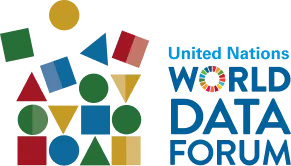
Building data systems for all: Facilitating intersectional data collection, analysis, and use to leave no one behind
Open Data Watch
Civil Society
Data2X, Koppa - The LGBTI+ Economic Power Lab
Global
Develop a collaborative to facilitate sustained collaboration and manage innovative research to overcome existing barriers and harness the full potential of intersectional data.
As we approach the 2030 deadline, it is imperative to ensure that data systems serve the needs of all communities. At this pivotal moment in the pursuit of sustainable development, we can only address the complex barriers that hinder progress through the collection and analysis of intersectional data. People are not monoliths and their identities impact how they experience the world. Without data that captures the nuances of our individual experiences, policy makers will be hamstrung in their efforts to facilitate inclusive and sustainable development. However, current data systems are not equipped to collect and analyze these data – countries do not collect and publish enough disaggregated data, they do not have the necessary data governance, security, and privacy frameworks, and they contend with technical, financial, cultural, and legal barriers to collecting, analyzing, and using intersectional data. To address these issues, the development data community must come together to conduct research to understand these constraints, identify good practices, bridge divides between different data communities, and further advocate for more and better intersectional data. ODW, Data2X, and the Center for Global Development aim to achieve this by building a collaborative of data practitioners and other development experts to guide the agenda, support innovative research, and facilitate greater global coordination.
To achieve these goals, the collaborative will conduct research on intersectionality in development data, including understanding the type of data needed for countries to collect and analyze intersectional data, identify global best practices and develop case studies, building connections with different global data workstreams, such the Citizen Data Collaboratives, and scheduling regular roundtables and events to get feedback, promote, and advocate for this work and share the insights collected.
Progress will be monitored through regular meetings of the collaborative partners, tracking of activities and outcomes, and feedback mechanisms from members. Metrics such as the number of partners involved, the frequency of knowledge sharing activities, and any new collaborations or partnerships that resulted from such activities will be used to assess progress.


